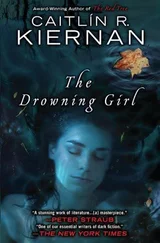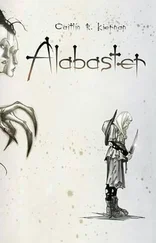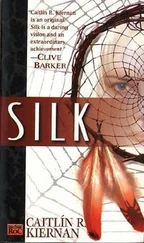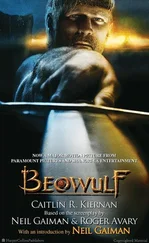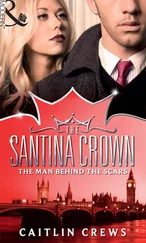Caitlin R. Kiernan - The Red Tree
Здесь есть возможность читать онлайн «Caitlin R. Kiernan - The Red Tree» весь текст электронной книги совершенно бесплатно (целиком полную версию без сокращений). В некоторых случаях можно слушать аудио, скачать через торрент в формате fb2 и присутствует краткое содержание. Жанр: Ужасы и Мистика, на английском языке. Описание произведения, (предисловие) а так же отзывы посетителей доступны на портале библиотеки ЛибКат.
- Название:The Red Tree
- Автор:
- Жанр:
- Год:неизвестен
- ISBN:нет данных
- Рейтинг книги:3 / 5. Голосов: 1
-
Избранное:Добавить в избранное
- Отзывы:
-
Ваша оценка:
- 60
- 1
- 2
- 3
- 4
- 5
The Red Tree: краткое содержание, описание и аннотация
Предлагаем к чтению аннотацию, описание, краткое содержание или предисловие (зависит от того, что написал сам автор книги «The Red Tree»). Если вы не нашли необходимую информацию о книге — напишите в комментариях, мы постараемся отыскать её.
The Red Tree — читать онлайн бесплатно полную книгу (весь текст) целиком
Ниже представлен текст книги, разбитый по страницам. Система сохранения места последней прочитанной страницы, позволяет с удобством читать онлайн бесплатно книгу «The Red Tree», без необходимости каждый раз заново искать на чём Вы остановились. Поставьте закладку, и сможете в любой момент перейти на страницу, на которой закончили чтение.
Интервал:
Закладка:
Finally, a thought has occurred to me, and maybe it’s not the sort of thought I should write down. But I probably shouldn’t be writing any of this down, so, fuck it. I have begun to question my assumption that Constance used the fishing line so she’d be able to find her way back. Sure, I know how rattled she was by our having gotten lost, trying to reach the tree in July. And then her misadventures in the cellar. But she clearly did not use the line to get back to the house. She took some other route. So, possibly it was put there not as a lifeline, but as a means of leading me to the oak. A carrot on a stick. A trail of breadcrumbs left for a hungry animal to lap up. I’m moving the typewriter into my bedroom, away from the kitchen window. I’d rather not sit here now.
It’s raining today, a hard, steady rain, and there’s wind and thunder and lightning. It’s coming at us from Connecticut, I think, and before that this storm must have seen New York, and Canada, perhaps. Maybe it was born in the Arctic, and has spent weeks looking for the sea. Upon reaching the Great Lakes and realizing they were landlocked, perhaps it felt cheated. If a tree can be wicked, surely a storm can feel betrayed. Anyway, I’ve spent most of the day shut away in my room (leaving only to go to the toilet), reading and trying hard not to think my own thoughts, trying only to lose myself in what others have thought before me. But somehow, as though escape from morbid rumination has now been forbidden, I ended up with Poe’s Tales of Mystery and Imagination . I’d meant to read something harmless, something new, the sort of throwaway paperback that commuters buy at airport newsstands, intended only to amuse or distract them for the duration of any given flight. Instead, I reread “The Fall of the House of Usher,” “The Gold Bug,” “The Murders in the Rue Morgue,” and “MS. Found in a Bottle.” There are two passages from the latter I wanted to write down, because they seem to speak not only to what I experienced yesterday, upon reaching the end of Constance’s tether and finding myself at the red tree, but also because they say something, I believe, about my present state of mind:
A feeling for which I have no name, has taken possession of my soul — a sensation which will admit of no analysis, to which the lessons of by-gone times are inadequate, and for which I fear futurity itself will offer me no key. To a mind constituted like my own, the latter consideration is an evil. I shall never — I know that I shall never — be satisfied with regard to the nature of my conceptions. Yet it is not wonderful that these conceptions are indefinite, since they have their origin in sources so utterly novel. A new sense — a new entity added to my soul.
Of course, Poe’s narrator, marooned on that ghostly black galleon as it sails the south polar seas, is a man bereft of the capacity for fancy and imagination. As he says, “. . a deficiency of imagination has been imputed to me as a crime. .” And here I am, a woman afflicted since childhood with far too great a proclivity for fancy. At least, this is the judgment that was passed upon me at a very early age. All those elementary schoolteachers and aunts and my parents and whoever the hell else, those wise adults in Mayberry who fretted about and pointed at my “overactive imagination.” But I suppose that I’ve shown them. Well, then again, considering the lousy sales of my books, maybe they get the last laugh, after all. And maybe it is just those sorts of minds, closed as they are to the corrosive perils of fantasy, that are most suited to encounters with the uncanny. I can only say that Poe’s words ring true. Here is another passage from the same story:
To conceive the horrors of my sensations is, I presume, utterly impossible; yet a curiosity to penetrate the mysteries of these awful regions, predominates even over my despair, and will reconcile me to the most hideous aspect of death. It is evident that we are hurrying onwards to some exciting knowledge — some never-to-be-imparted secret, whose attainment is destruction.
Not long after I made that last entry, as I was beginning “The Cask of Amontillado,” Constance knocked at my bedroom door. I said that I was busy, that I didn’t wish to be disturbed. It was a lie, on both accounts, but, still, those are the words that came out of my mouth.
“I heard the typewriter,” she said, her voice only slightly muted by the wood through which it had to pass to reach my ears. “So, I was surprised when I came downstairs, and saw you weren’t in the kitchen. I was surprised that the typewriter wasn’t on the table. Are you okay, Sarah? Is something wrong?”
I almost asked if she’d noticed the plastic spool lying near where the typewriter used to sit, the empty 150-yard spool of McCoy “Mean Green” Super Spectra Braid. But I didn’t. If I was meant to find that line and follow it to the oak, then we are playing a game now, the sort where one does not show her hand. And if I was not, it would have been an odious thing to say. There’s the worst of this, right there. Not knowing if I am consciously being led down these abominable and numinous roads. Or if we are both adrift on the same black galleon, in the same icy sea. Are we now damned together, or might I be the oblation that will set her free? Has she struck a deal with the tree, her life in exchange for something more substantial than a gutted rabbit? And if that’s the truth of it, was the fishing line an attempt to warn me?
“I’m worried about you,” she said.
The door wasn’t locked, and I told her she could open it, if she wanted. She opened it partway, and peered in.
“There’s no need to be worried,” I replied. “I’m fine.”
I was sitting on the floor at the foot of the bed, and she was standing in the doorway. I was wearing only my bathrobe and a T-shirt and panties underneath it. She was wearing black jeans and one of her black smocks, and her hands and arms and face were a smudged riot of yellows and browns, crimson and gold, orange and amber and a vacant, hungry shade of blue, as though she’d begun, prematurely, to bleed autumn. Dr. Harvey’s antique Royal was (and still is) parked on the dressing table.
“Sarah,” she said, “has something happened? After the seizure, or because of it? Something I should know about? Or maybe when we were in the basement—”
“Do you remember it now, the basement?” I asked, and she stared at me a while before answering.
“Nothing I haven’t told you already.”
“Irgendwo in dieser bodenlosen Nacht gibt es ein Licht,” I said, not meeting her eyes. “Has that part come back to you?”
“Sarah, I don’t even remember what that means, what you told me it means.” And she took a step or two into the room, though I’d only given her permission to open the door, not enter.
I shut my eyes and listened to the rain peppering the windowpanes, the one in front of me and the one on my right, south and west, respectively. I wished that she would leave, and I was afraid that’s exactly what she was about to do. I could hardly bear the thought of being alone, so near to the oak, but her company had become almost intolerable. So, there’s me between a rock and a hard place. Scylla and Charybdis. The devil and the deep blue sea. The fire and the frying pan.
“If you need to talk, I can listen,” Constance said.
“But you’re so busy,” I told her, and if I’d had my eyes open, I think I would have seen her flinch. “So much canvas, and so little time, right? That muse of yours, she must be a goddamn slave driver.”
Читать дальшеИнтервал:
Закладка:
Похожие книги на «The Red Tree»
Представляем Вашему вниманию похожие книги на «The Red Tree» списком для выбора. Мы отобрали схожую по названию и смыслу литературу в надежде предоставить читателям больше вариантов отыскать новые, интересные, ещё непрочитанные произведения.
Обсуждение, отзывы о книге «The Red Tree» и просто собственные мнения читателей. Оставьте ваши комментарии, напишите, что Вы думаете о произведении, его смысле или главных героях. Укажите что конкретно понравилось, а что нет, и почему Вы так считаете.

